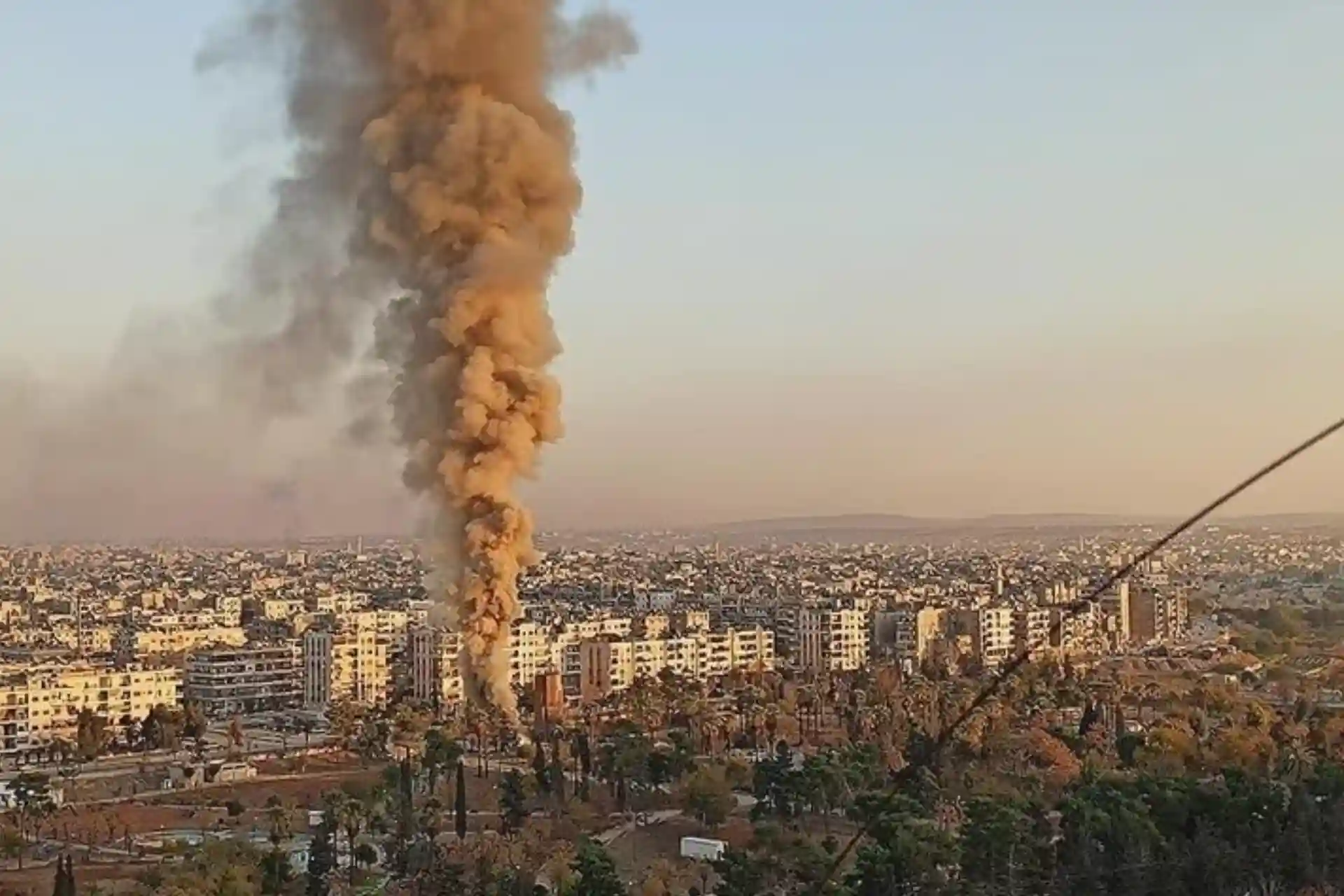Why does Israel want to turn Syria into a failed state?
Netanyahu's main goal appears to be to systematically weaken and fragment Syria, leaving it under Israeli control, depriving it of a central government, and plunging it into a vortex of sectarian conflict. An environment of "managed chaos" is hindering Syria's recovery from more than a decade of war, turning it into a failed state, and empowering Israel under the pretext of reducing any threat that might arise from a new Syria. Ibn Khaldun Research Assistant Professor at the Center for Humanities and Social Sciences From the article by Ali Bakir.
At a recent military ceremony in Israel, Prime Minister Benjamin Netanyahu made a sharp statement about Syria's new government, explaining his country's strategy since the overthrow of the Assad regime.
His speech emphasized three main points. First, Netanyahu said that Israel would not allow the new Syrian government to deploy military forces south of Damascus and called for the "complete demilitarization" of the area - specifically the provinces of Quneitra, Daraa and Suwayda.
Second, Netanyahu has portrayed Israel as a protector of the minority Druze community, which is consistent with Defense Minister Yisrael Katz's recent statements about strengthening ties with "friendly populations" in southern Syria .
Third, Netanyahu reiterated Israel's commitment to occupying Syrian territory, noting that Israeli troops would remain in the buffer zone and in the Mount Hermon area "indefinitely."
This position confirms Israel's continued policy of territorial expansion and occupation, especially in the Golan Heights.
Netanyahu's main goal appears to be to systematically weaken and fragment Syria, leaving it under Israeli control, depriving it of a central government, and plunging it into a vortex of sectarian conflict.
An environment of "managed chaos" will hinder Syria's recovery from more than a decade of war, turn it into a failed state, and strengthen Israel under the pretext of reducing any threat that might arise from a new Syria.
Dismembering Syria
This approach is not new. It has been a constant element of Israeli policy since the state's founding, and has been applied in various situations and regions, including Lebanon.
Disarming the area south of Damascus could weaken the Syrian government's authority and weaken state control, paving the way for the formation of local militias backed by Israel that seek to build a "state within a state."
Israel's strategy also aims to encourage other minority groups living in northern Syria to oppose the central government, thereby dividing the country, even if only in practice.
The explicit mention of the Druze community reflects Israel's "minority alliance" doctrine, which seeks to ally itself with minority groups in the region against the Sunni majority. This divide-and-conquer policy fosters hostility, suspicion, and sectarianism, using minorities as a tool to provoke a violent response from the majority.
Israel has previously used this strategy with Christian and Shiite communities in Lebanon. Now it is trying to do the same with the Druze, Kurds, and Alawites in Syria. However, this approach is destructive and ineffective, and ultimately harms both the minorities and those who seek to control them.
Netanyahu's demand to disarm southern Syria and Israel's escalation of airstrikes on Syrian military targets have received no response from Western countries or the wider international community. The lack of response is being taken by Netanyahu as permission to continue this policy.
Israel's threatening and aggressive actions have provoked a multifaceted response from the new Syrian government. Syrian President Ahmed al-Shar' has maintained a balance of restraint and resistance under the influence of a number of important factors. These factors include Syria's weak military, economic, and political situation; the need to maintain legitimacy as a leader and extend state control to all parts of Syria; and the process of rebuilding the country.
Symbolic resistance
Late last month, a statement by the Syrian National Dialogue Conference rejected any territorial concessions. It showed both Israel and Shar's internal audience that Netanyahu would not yield to his demands for disarmament. The statement called for Israel's "immediate and unconditional withdrawal" from Syria. This symbolic act of resistance cemented Ahmad al-Shar 's power without posing an immediate threat of conflict.
On February 26 , Shar visited Jordan and met with King Abdullah II. The king reiterated Amman's support for Syrian sovereignty and condemned the Israeli invasion. The visit, Shar's third foreign trip since taking power, reflects efforts to build a regional alliance to counter Israel's actions through diplomatic rather than military means. In particular, Jordan shares Syria's concerns about border stability.
Shar's restrained response could also be a response to domestic pressures. While protests in Quneitra, Daraa, and Suwaydah against Netanyahu's latest statement reflected popular anger, Shar's did not translate these feelings into actions against Israel, as previous attempts by regional regimes had not yielded good results.
Shar' instead responded with verbal condemnations of Israeli provocations, calls for peace and diplomatic negotiations, emphasizing Syria's right to its territory and trying to avoid escalating the situation. His previous pledge to adhere to the 1974 ceasefire agreement reflects this approach.
However, while this may bring regional and international support to Sharia, it will damage its domestic reputation in the medium to long term, and this may not be enough to stop Israel.
Historically, Israel has interpreted calls for peace as a sign of weakness and an opportunity to aggressively pursue its vast territorial claims.
Collective action
Given the complex situation in Syria, collective action is needed in response to Israel's actions. The international community must fulfill its obligations and Arab states must act together, as Israel will clearly suffer serious losses if it turns Syria into a failed state.
Countries such as the Arab League, Jordan, Egypt, Saudi Arabia, and Qatar have strongly condemned Israel. Most importantly, Turkey, a regional power with significant interests in Syria, has an interest in a stable Damascus and stands to lose from Israeli aggression against Syria.
Ali Bakir , Research Assistant Professor at Ibn Khaldun Center for Humanities and Social Sciences



